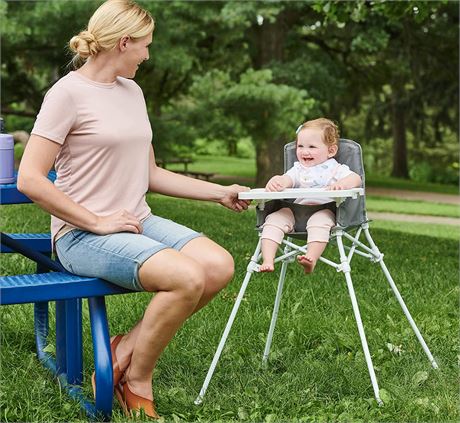Sunny Gault 0:00
As a new mom, you're probably wondering how often you should feed your baby. I mean, yeah, crying that's usually a good sign. But how can we be proactive? And can we overfeed our babies? Hi guys, I'm Sunny with New Mommy Media and I am joined by Mallory Millet, she is an infant feeding specialist and her website is The Feeding Mom. Hi, Mallory. Thanks for being with us today.
Mallory Millet 0:25
Hello, I'm excited to be here.
Sunny Gault 0:27
Mallory, the frequency of when we feed our babies, obviously, that's going to change with the age of the baby. But let's focus on the first year since that's the majority of moms that are probably watching today's video, how often should we be feeding our children during that time?
Mallory Millet 0:43
I think that the more important question is to or thought is to not go too long. Now we have your night sleep, and that is going to transition like crazy in that first year, right. But during the day, we want to make sure they're getting feedings at least every three to four hours. It can be sooner than that, though. And that I think, is what a lot of moms struggle with. My baby eats all day long, or sometimes they go five hour stretches, but then they're feeding a lot in the middle of the night. Okay. So if we can, in our minds, think, okay, two to four hour range is what would be considered average. But knowing that within the day, there may be a period of time where babies eat every hour within that feeding window. And that is okay, that's what we call cluster feed. Maybe they need to catch up on some ounces. But we don't want to go past four hours, because now we're starting to stretch sleep. And that can cause reverse cycling at night, right. And so I think it's more important to think about, we don't want to go past the four hour mark during the day. And then we don't if we're feeding all day long, like really feeding all day. I know moms new moms especially feel like oh my god, all I feel like as I do is feed this baby, right? But if you're looking at the clock, and you're legitimately feeding every hour all day, then maybe there's something else that needs to be looked at maybe baby is not efficient at feeding, and we need to take a bigger look at what's happening.
Sunny Gault 2:35
Okay, should moms be kind of feeding on demand? I remember when my kids were really little, and especially during the breastfeeding phase, which is a whole other topic. But I would just kind of feed as I thought that they you know that that's what they were asking for. So should we be doing that, especially when babies are more of like the newborn in the first few months?
Mallory Millet 2:55
Yeah, absolutely. And I think our culture kind of shifted into this, oh, you feed on a schedule, right? You hear that all the time? Well, you can only feed every three hours, or you have to wait until your three hour mark. And that's kind of where we end up in this struggle with feeding, it should always you should be reading baby's cues all the time on whether you're feeding in the back of your mind. You're tracking time, right? I mean, because like we talked about earlier, there are areas where it could give us a clue into Do we need more support here. But always if your baby is hungry, we need to feed.
Sunny Gault 3:39
And what are some of those cues I mentioned earlier? Just kind of joking. But if your baby's crying, yes, you know that that might be a good indication. But are there other cues that babies give that indicate that they might be hungry?
Mallory Millet 3:54
Yeah, so crying is actually a late hunger cue. So if we got to the crying, then baby's frustrated, we're taking in a lot of air, the feeding is already starting out in a not so good spot, right? I mean, sometimes that happens, and it is what it is. But as a newborn, especially early cues are going to be mouthing immediately, right, those hands go up to the mouth and they just want to suck. Even bottle feeding, babies will turn to mom and start rooting or whoever is holding them and start rooting on their chest. So those are your signs that you want to start looking for early and then be responsive to that. As baby gets older, you learn to know your baby. You every baby is different and some babies may start sucking on their thumb when they're hungry and some babies may start tapping your shoulder right? I mean, all babies are different and you learn them. But as a newborn, sucking those hands or turning their head and kind of nuzzling Those are really good queues.
Sunny Gault 5:02
Okay, and what about overfeeding? I guess this is more for the moms that are on more of a schedule, right? And there's only certain times that they can feed and you know, they're following, you know, more of a schedule, but can you over feed your baby.
Mallory Millet 5:16
I think this tends to happen a lot more with bottle feeding parents. Because as a bottle feeding parent, you're not given much instruction, when you tell your doctor or your pediatrician, oh, I'm bottle feeding. And they say, Okay, we'll give three ounces every three hours. And when they're this age, you give four ounces every three hours and they give you the structure right, and then all moms go by that structure. Baby's ounce intake should fluctuate throughout the day, you can have a standard where, like, let's say you're at 21 ounces during the day is what is where our total consumption should be based on baby's weight. Divide that by five, right and for your five bottles and you get an ounce. That is where your ounces should start. It doesn't need baby takes all of those ounces every time. So if your baby is at a three ounce bottles, and they only drink two and a half, we need to read those cues, baby's pulling off babies pushing away. If they stop actively sucking, we need to be responsive. And don't give them that full bottle it is not necessary that they eat a full bottle every time that is where overfeeding comes in and I think it happens way more with bottle feeding.
Sunny Gault 6:44
Yeah, yeah, it's almost like we want to be as efficient as possible like we made the bottle you know we do this when they're older too. It's like finish your meal I'm a meal fish and the last sometimes we do that as opposed to listening to our kids cues.
Mallory Millet 6:59
I mean formula is so expensive and I get it and it is and it is frustrating. But overfeeding leads to way more other issues later on. And, and a big issue immediately is reflux. I work with a lot of moms who once they start to read baby's cues and and don't force the whole four ounces. And so maybe they only drink two and a half that one sitting there total ounce throughout the day is still within a range that's appropriate. But we're not refluxing anymore. It's because we're overfeeding and it can it sounds like such a little thing, but even a fourth of an ounce. Sometimes you just got that little bit left in the bottle, right? And you're like, come on, just finish it. But maybe that little bitty mount can cause a lot of problems. And so read those baby's cues, respect them. Create a responsive eater, and you're gonna, you're gonna waste some formula. I know it's heartbreaking. It is heartbreaking.
Sunny Gault 8:07
Good advice. Well, thank you Mallory. Now if you guys want to learn more about Mallory, she's got online courses. She does video consultation services online, visit her website it is http://www.thefeedingmom.com We also want to send a special thanks to our sponsor for today's video. It's Regalo Baby! You can save 25% plus free shipping when you purchase through their website. You do have to use our special promo code though so for more information on that, check out the video description. And don't forget to visit our website https://newmommymedia.com. We've got podcasts, more great videos like this blog post anything you could want- dealing with new and expecting moms. It's where real moms talk about real life.








